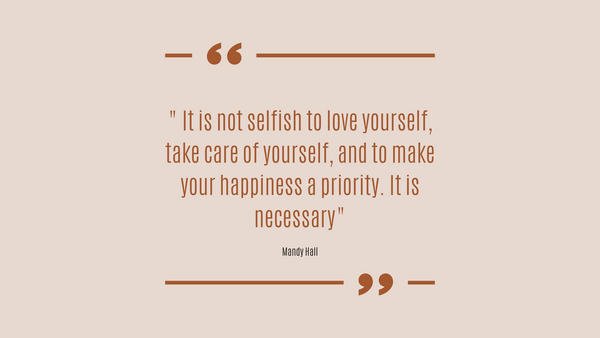Welcome to Win Your Week - our weekly blog on all things motivation, mindfulness, life hacks and more!
The way we talk to ourselves can be highly influential over how we feel about ourselves and how we behave.
So today we wanted to talk about self-talk and how we can ensure we are talking to ourselves in a productive and positive way. Let's dive in!
What is self-talk?
Put simply, self-talk is the internal narrative we hold about ourselves - commonly known as our inner voice.
This dialogue can range from giving ourselves instructions while we carry out a task, all the way to random observations about our environment or a situation.
While we may not be aware of this inner voice, it is always there, and it is formed from our conscious thoughts and in-built beliefs and biases.
The origin of this inner voice is super important as our self-talk can be supportive and motivating, or it can be negative and undermine our confidence and relationships with others.

What does negative self-talk looks like?
Negative self-talk is often our default as our brains are hardwired to remember negative experiences over positive ones (you may remember this from our Win Your Week on negativity bias). These messages are then replayed in our minds as they fuel our negative feelings.
Negative self-talk also can make us feel like we are going to fail before we even start, focusing on preconceived ideas that we’re ‘not good enough’ or ‘always a failure’. This can be overwhelming and difficult to break out of and often does not reflect reality.
What positive self-talk looks like?
On the flip side positive self-talk involves showing ourselves self-compassion and understanding for who we are and what we’ve been through.
Positive self-talk sees our internal narrative switching to ideas like ‘I can do better next time’ or ‘I choose to learn from my mistakes' instead of being held back by them.

What are the benefits of self-talk?
If we mainly think positively about ourselves, we will feel good and optimistic most of the time. This can have profound positive effects such as:
- Improved self-esteem, stress management and wellbeing
- Improved body image
- Boosted confidence and resilience
- Increased sense of control of our lives
- Better relationships
If we do engage in negative self-talk, no need to worry. Not only is it very common, but it is also something that can be improved with practice!
How to improve your self-talk
The first step to practising more positive self-talk is being aware of what we say to ourselves in the first place. Just the act of stopping and recognising negative thoughts for what they are, can help us work through the problem. It can be helpful to ask, would we talk like this to someone else?
Identifying self-talk traps might also mean identifying a person/people who encourages us to think negatively about ourselves. Remember: It’s okay to create boundaries with these people.

How to challenge your negative thoughts
Now that we have acknowledged the negative thoughts, we can start to ask ourselves if they are true. As is often the case there’s usually another explanation or way of looking at a situation, and many things that we worry about may not even eventuate.
Putting our thoughts into perspective is another helpful trick for when negative thoughts arise. Looking at things from a different perspective or asking will this matter in a few years’ time is a great place to start.
Another tactic is simply stopping the thought. This one is much harder than it sounds, but can be achieved by visually ‘thought stopping’— by imagining the thought being stopped or squashed etc.
How to use positive affirmations
Now that we have challenged the negative self-talk we can implement some positive self-talk techniques.
Positive affirmations are a great way to switch up our self-talk. Before a situation even arises that might incite negative self-talk, we can practice saying positive affirmations.
Some affirmation to try:
- Attempting to do this took courage and I am proud of myself for trying.
- I can’t control what other people think, say or do. I can only control me.
- This is an opportunity for me to try something new.
Over to you!
It can take some time to recognise negative thoughts — remember they have been part of us for a long time and it can take up to 3 months to change old habits. Over time though we can replace unhealthy negative thoughts with more positive ones. Trust us when we say that practice makes it easier!
When challenges do arise, we can check in with how we’re feeling and that our self-talk hasn’t gotten negative. We can bring it back with some positive phrases.
Now go ahead and Win Your Week!









